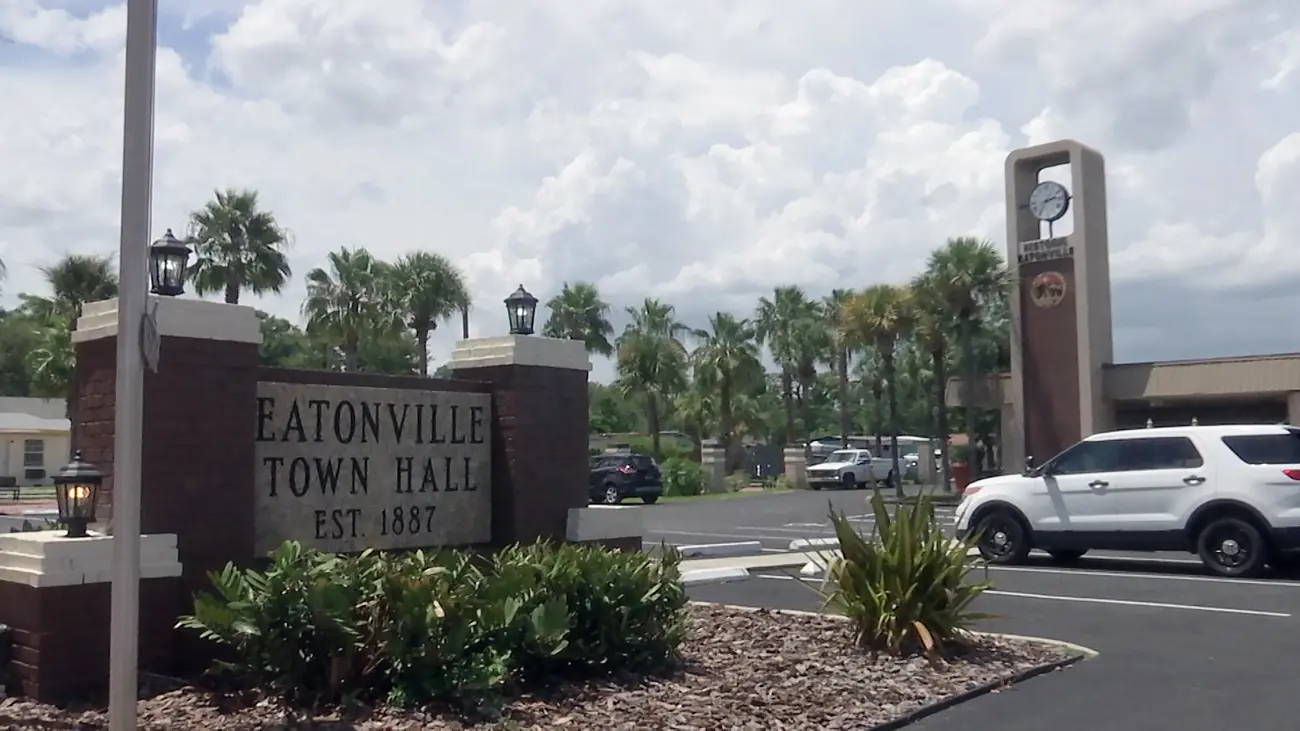Many people are familiar with the work of writer, folklorist, and anthropologist Zora Neale Hurston, and the historic significance of the town of Eatonville, Florida, but that was not true 30 years ago.
In 1987, the town of Eatonville celebrated its centennial as the oldest incorporated African American municipality in the United States. That same year, community organizer N.Y. Nathiri attended a public hearing about the proposed widening of Kennedy Boulevard into a five lane road. Listening to the discussion, Nathiri realized that the project would destroy her historic hometown.
“There are three ways that you destroy a community,” says Nathiri. “You either remove a school, you remove houses of worship, or you insert a highway. The hearings were pro forma. The staff had already determined what the recommendation would be to the county. We didn’t realize that, of course. The commission hearing was very cynically placed in terms of time. The hearing was the Monday before Thanksgiving, the beginning of the holiday season, when no one is going to pay attention.”
The Association to Preserve the Eatonville Community (P.E.C.), was organized to fight the destructive road project and save the historic community made famous in the books of Zora Neale Hurston, including her novel “Their Eyes Were Watching God,” her anthropological work “Mules and Men,” and her autobiography “Dust Tracks on a Road.” The group formed a coalition with their predominately white neighbors in Maitland.
“I became a reluctant spokesperson,” says Nathiri. “I remember the late Mr. Frank Otey and other people saying ‘N.Y., P.E.C. cannot just say you don’t want the road. That’s not going to work. You’re going to have to talk about alternatives, and your alternatives can’t be emotional.’ So, immediately that meant that we were engaging with planners, with engineers, looking at the technical case for the road and why it was flawed. That was one part. The other part was [explaining] what it is that makes historic Eatonville special. If you can imagine, in 1987, the decision makers, the opinion shapers, in other words white Orange County, had not heard of Zora Neale Hurston.”
As part of a public awareness campaign, the Association to Preserve the Eatonville Community, under the direction of N.Y. Nathiri, organized the Zora Neale Hurston Festival of the Arts and Humanities. The event included academic panel discussions about Hurston and her Harlem Renaissance contemporaries, art exhibitions, theatrical presentations, musical performances, and an outdoor festival with vendors and food. Although Hurston was not very well known in Central Florida, people around the world were familiar with her work, and came to celebrate it.
“When we organized the first festival in 1990, we had ten thousand people coming to this little community,” says Nathiri. “Those are not exaggerated figures; we literally were able to count. We had all of the names that you would want to have, the late [actress] Miss Ruby Dee, Dr. Robert Hemenway [Hurston’s] literary biographer, Alice Walker, Pulitzer Prize winning author of ‘The Color Purple.’ The big thing was that ‘The Color Purple’ had become a movie, so everyone knew about it. We had also done a call for academic papers, and we had fifty-five scholars to respond.”
P.E.C. continues to present the annual ZORA! Festival during the last week of January. The organization benefits the community year-round by operating the Zora Neale Hurston National Museum of Fine Arts, the Excellence Without Excuse Computer Arts Lab, and a community garden.
It took ten years for the organization to get Eatonville designated as a National Historic District.
While Eatonville has historic significance as America’s oldest incorporated African American town, and the home of Zora Neale Hurston, the town does not have many historic structures. Joe Clark’s store from “Their Eyes Were Watching God” does not exist, and neither does the home that Hurston grew up in. This lack of historic buildings caused difficulty for Nathiri and P.E.C. at the state and national levels.
“Even though Eatonville may not have had built environment, buildings, there was a case to be made in terms of the criteria to be listed on the National Register of Historic Places.”
Nathiri’s persistence was rewarded, as the historic significance of Eatonville is widely known today.

